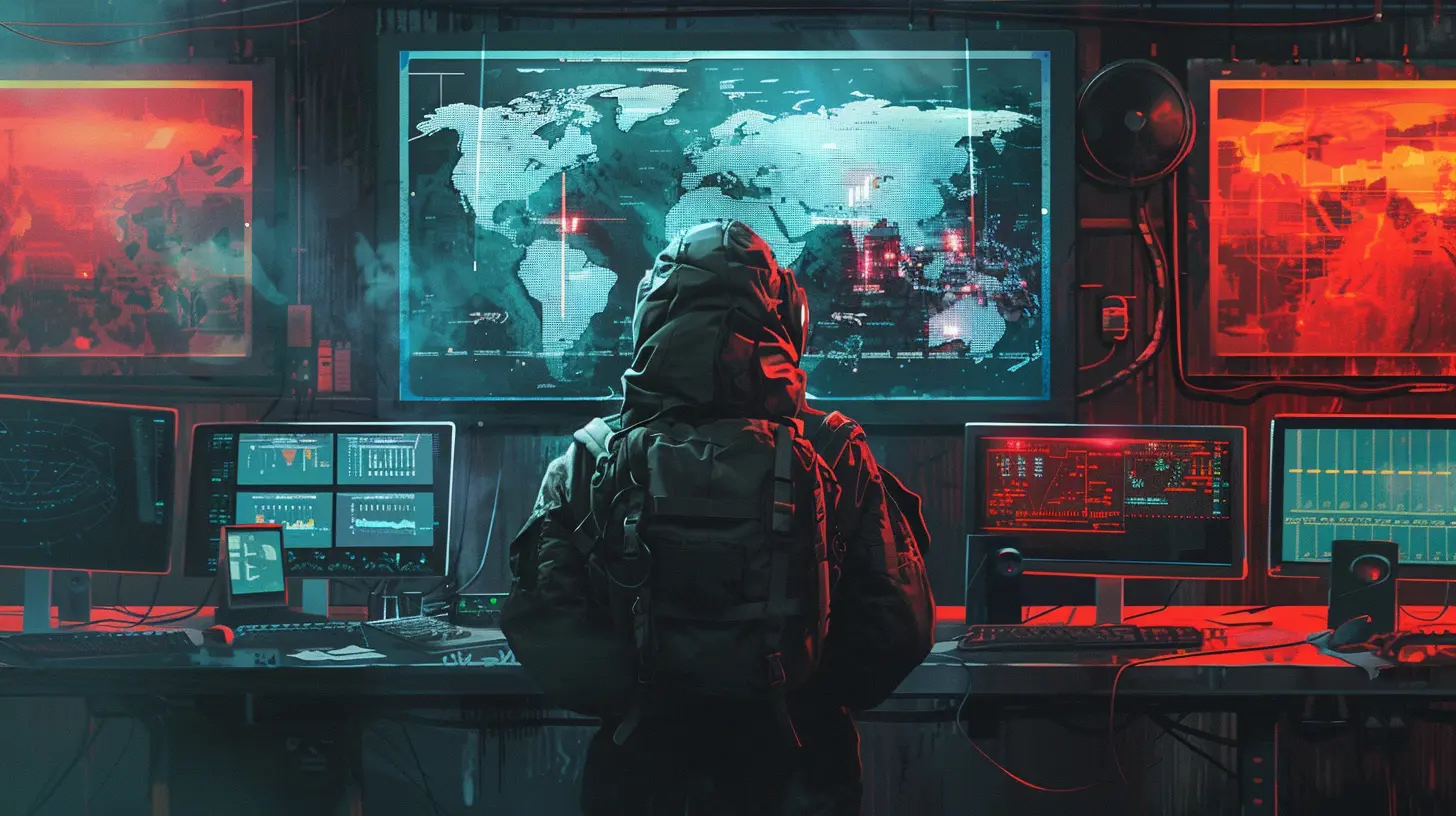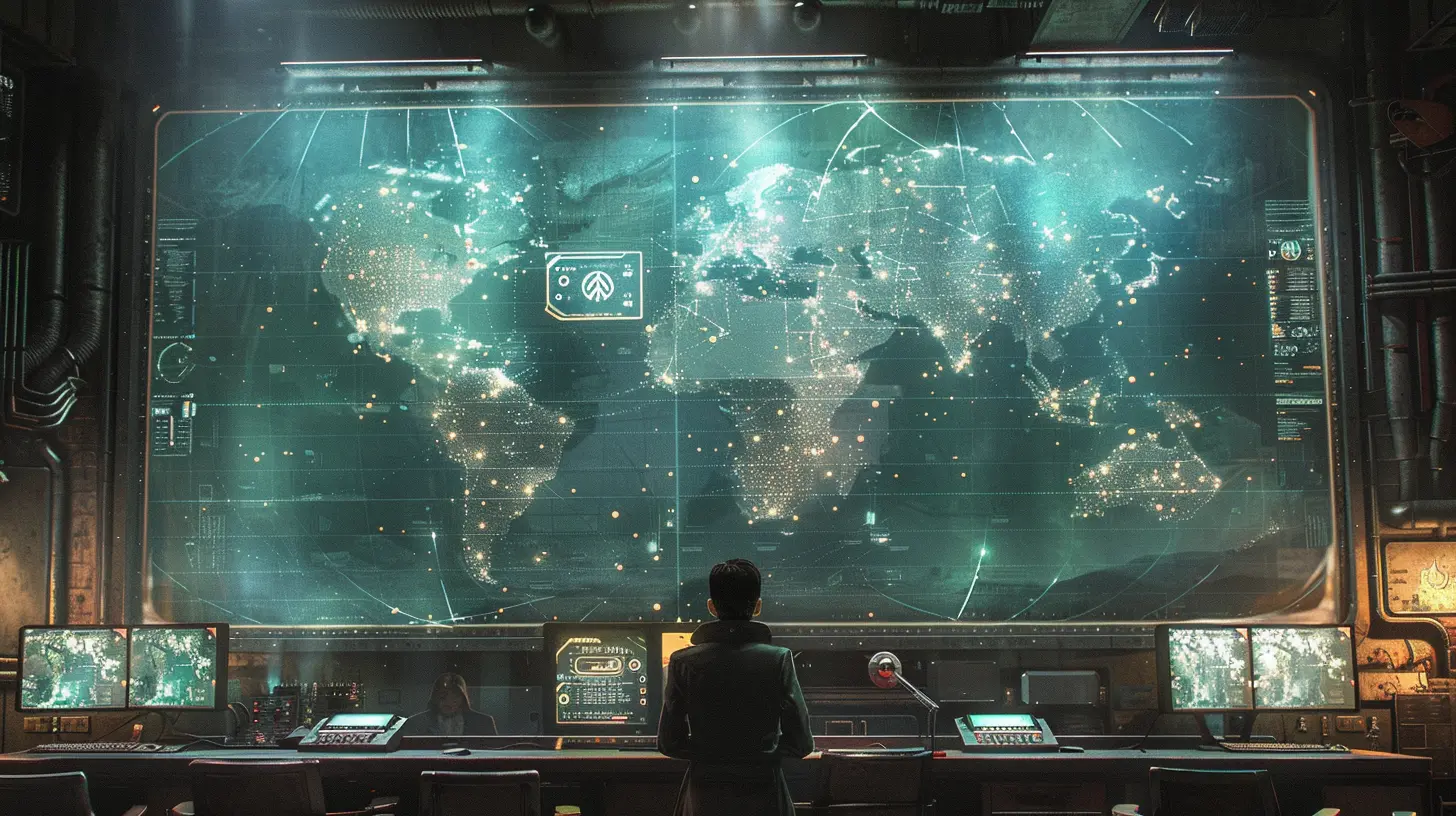The Role of Espionage in War Games
27 September 2025
When it comes to war games, whether in the digital world or tabletop strategy, espionage plays a critical, yet often underappreciated role. It’s that sneaky, behind-the-scenes action that can either make or break your grand strategy. Think of it as the secret spice in a recipe—it’s not the star of the show, but boy, does it make everything taste better.
But what exactly is espionage in war games? Why is it so essential? How can it enhance your gameplay strategy? Buckle up, because we’re about to dive deep into the shadowy world of spies, counterintelligence, and covert tactics—where information is power, and trust is a luxury you can’t always afford.

What Is Espionage in War Games?
Before we go further, let’s break it down. Espionage in war games refers to the use of spies, surveillance, and secret operations to gather intelligence about your opponents. Essentially, you're trying to figure out what the other side is up to without them knowing. This can include anything from uncovering hidden troops on the battlefield to sabotaging their strategies or resources.It’s not just about snooping, though. Espionage is a double-edged sword. Sure, you can gather critical intel to bolster your position—but if the other players catch wind of your plans, you could be in for a world of trouble. Ever had a friend flip the Monopoly board because you had all the prime properties? Yeah, it’s kind of like that, but with even more at stake.
Why Is Espionage So Important in War Games?
Espionage is the secret sauce that brings complexity and depth to war games. Why? Because it mirrors real-world warfare, where battles are not just won with brute force but also with brains. Let’s dive into a few reasons why espionage matters so much:1. Knowledge Is Power
If Sun Tzu taught us anything, it’s that knowing your enemy is half the battle. Espionage allows you to gather crucial intel—like troop movements, resource allocations, or upcoming plans—that can give you a massive strategic advantage. Imagine playing chess while knowing your opponent’s next three moves. That’s the kind of edge espionage offers.2. Disruption and Chaos
Espionage isn’t just about gathering information; it’s also about screwing up your opponent’s plans. Think about it—if you can sow doubt, disrupt logistics, or make them second-guess their choices, you’ve already tilted the scales in your favor. Sabotage missions, planted misinformation, or even fake alliances can throw a monkey wrench into even the most organized strategies.3. Adds Depth to Gameplay
Let’s be honest: no one wants a game that’s too predictable. Espionage adds layers of mind games and bluffing, keeping everyone on their toes. It’s the curveball that can make a straightforward war game feel like a high-stakes poker match, where reading your opponent is just as important as playing your hand.
Key Elements of Espionage in War Games
Espionage isn’t just about hiring James Bond and calling it a day. Successful spy tactics in war games depend on several key elements. Let’s break these down:1. Covert Operations
Whether it’s sneaking a spy into enemy territory or intercepting a secret message, covert operations are the bread and butter of espionage. Many war games, like Civilization or StarCraft, include mechanics for sneaky side missions that can sabotage your enemy or bolster your position.2. Counterintelligence
The flipside of espionage is protecting yourself from it. After all, what good is your grand strategy if your opponent knows every move? This is where counterintelligence comes in—deploying your own spies to sniff out traitors and block enemy efforts. It’s a constant game of cat and mouse.3. Bluffing and Deception
Sometimes, espionage isn’t about what you know but what you can make others think you know. Bluffing and deception can work wonders. For example, in games like Risk, leading your opponents to believe you're focusing on one area while secretly fortifying another can catch them off guard.4. Resource Management
Espionage comes at a cost. In many war games, utilizing spies and covert tactics consumes resources, whether it’s in-game currency, time, or other assets. Balancing the expense of espionage with its potential rewards is often a key part of the strategy.
Famous War Games That Nail Espionage Mechanics
Some war games integrate espionage mechanics so seamlessly that they’ve become a fan-favorite feature. Here’s a look at some of the best examples:1. Sid Meier’s Civilization Series
In the Civilization games, espionage is a strategic cornerstone. You can send spies to rival nations to steal technologies, incite revolts, or sabotage production. But it’s a two-way street—your enemies can (and will) do the same to you.2. Metal Gear Solid Franchise
While more of a stealth-action series than a traditional war game, Metal Gear Solid takes espionage to a cinematic level. The gameplay revolves around sneaking, gathering intel, and using deception to outwit enemies. It’s like playing chess while crawling through a vent with a bandana on.3. Total War Series
In the Total War games, espionage is often a make-or-break tactic. Spies can infiltrate enemy armies, sabotage strongholds, or incite rebellions. These actions can tip the balance of power before the first sword ever swings.4. XCOM: Enemy Unknown
Espionage isn’t just about humans vs. humans—it’s also humans vs. aliens. In XCOM: Enemy Unknown, tactical use of espionage and reconnaissance can mean the difference between saving Earth and watching it burn.How Can You Master Espionage in War Games?
Now that we’ve covered the what and why, let’s talk about the how. Mastering espionage requires a mix of planning, adaptability, and good old-fashioned guts. Here are some handy tips:1. Think Two Steps Ahead
Espionage is not just about reacting; it’s about anticipating. Always be two steps ahead—not just of your opponents, but also of their potential countermoves.2. Use Deception Cleverly
Remember, a good bluff can be as effective as solid intel. If you can make your opponents waste resources or reposition their forces based on false information, you’re already winning.3. Balance Risk and Reward
Espionage is always a gamble. Sending spies into enemy territory can yield invaluable intel, but it can also cost you dearly if they’re caught. Weigh the risks carefully before committing.4. Don’t Neglect Defense
While it’s tempting to go all-in on offense, don’t forget to protect your own house. Counterintelligence is just as important as gathering intelligence.The Ethical Dilemma: Espionage in Multiplayer War Games
One interesting aspect of espionage in multiplayer war games is the ethical question it raises. Is it fair to mislead, cheat, or backstab your friends? Short answer: Yes. Long answer: It depends on the game. Espionage often blurs the lines between strategy and betrayal, but that’s what makes it so thrilling. Just make sure your friendships can survive the fallout.Final Thoughts: Why Espionage Keeps War Games Exciting
At its core, espionage is what elevates war games from mindless battles to mental chess matches. It’s the unpredictability, the mind games, the “gotcha” moments that keep us coming back for more. Whether you're planting spies in a rival empire or bluffing your way to victory, espionage adds depth, drama, and a dash of chaos to the mix. And honestly, isn’t that what we’re all here for?So next time you’re plotting your war game strategy, don’t just focus on brute force. Embrace your inner spy, and remember—sometimes the pen (or the poisoned dagger) is mightier than the sword.
all images in this post were generated using AI tools
Category:
War GamesAuthor:

Madeleine McCaffrey
Discussion
rate this article
2 comments
Mary McPherson
Insightful piece! Espionage adds depth and strategy, enhancing the overall gaming experience.
February 8, 2026 at 5:19 AM

Madeleine McCaffrey
Thank you! I'm glad you found the piece insightful—espionage truly does elevate the strategic elements of war games.
Clover Riley
Espionage in war games: where sneaky spies and cunning tactics collide! Whether you're infiltrating enemy bases or decoding secret messages, it’s all about outsmarting your opponent while having a blast. Just remember, in the world of games, trust is overrated—bring on the deception!
October 2, 2025 at 3:48 AM

Madeleine McCaffrey
Absolutely! Espionage adds an exciting layer of strategy to war games, emphasizing cunning and deception. It’s all about outmaneuvering opponents and making every move count!


